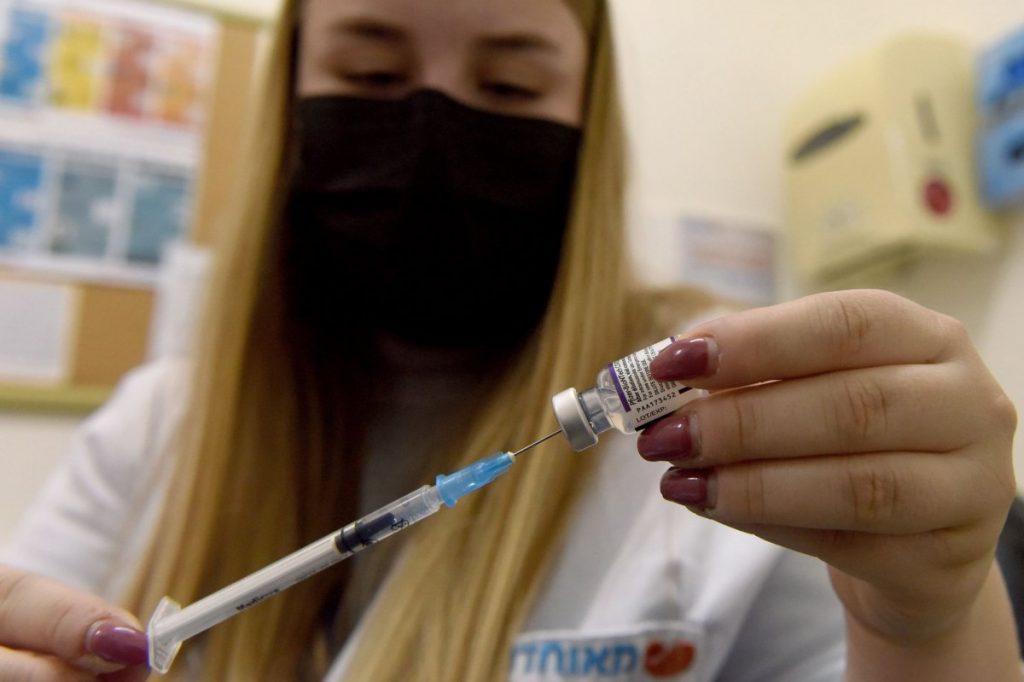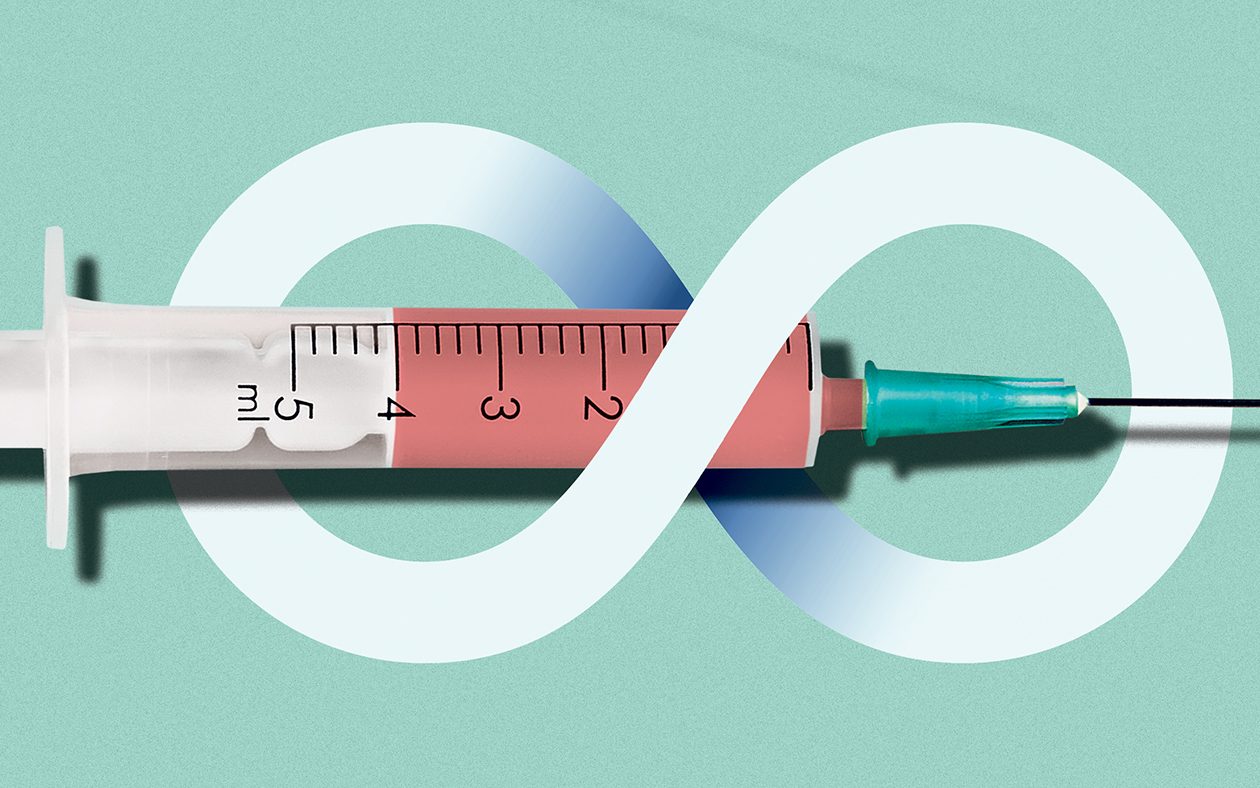COVID booster side effects – The world, including the United States of America, has been struggling with a deadly virus for the last two and a half years. We have seen a huge number of waves with the different variants of the virus, and we have lost so many Americans to the virus.
During the struggle with the virus, scientists came up with a vaccine for the virus to ensure the safety of Americans. The United States Food and Drug administration gave emergency use approval to three different vaccines.
At the same time, the Centers for Disease Control and prevention also started one of the biggest vaccination drives in the world. Now they are trying to achieve 100% vaccination status, but during the time of the proposal of vaccine manufacturers Food and Drug Administration of United States, and now that they are going to give booster dose hope for the same vaccine.
The whole charade of a primary dosage booster dose and a second booster dose of vaccine for COVID-19 has pushed everyone to question the effectiveness of the vaccine. At the same time, the market of rumors is also very active and spreading fake news regarding the COVID booster side effects.
Being responsible members of society and fellow Americans, we decided to clear the clouds of rumors related to COVID booster side effects. That is what we are going to talk about now. If you are also looking for the side effects, then keep reading the blog.
Common COVID Booster Side Effects
Let’s first address the biggest question of the day. As per the Centers for Disease Control and Prevention, there are no new reported Side effects of a booster dose of the COVID vaccine.
The side effects of both booster and primary vaccines are the same as the primary dosage of the vaccine. Kindly take a look at the below-given side effects.

On the Arm
As per the Centers for Disease Control and Prevention, the most common side effect of a booster dose of vaccine for COVID-19 is the pain on the spot of the vaccine injection. Almost everyone who is going to get vaccinated could experience pain on the spot of injection.
At the same time, there is a possibility that you might also experience swelling and redness on the spot of the vaccine. After paying on the spot of injection, redness and swelling are the most common side effects of taking any dose of the.
These side effects can happen with the primary dose of the COVID vaccine and booster dose as well. Usually, these symptoms go away on their own after one or two days, but if the situation is not getting better, you can contact your healthcare provider.
Throughout the Body
Apart from the side effects on the arm, you can also experience the side effects of taking the booster dose throughout your body. Just like the above-given side effects, these side effects will also go away within 24 to 48 hours of taking the vaccine.
First of all, you might experience tiredness after taking the vaccine, which is the most common side -effect of taking the vaccine. In data points released by Pfizer and published by the Food and Drug Administration of the United States, more than 80% of people will experience tiredness and fatigue after.
The second most common side effect of taking booster doses or regular doses of vaccines is muscle pain and headaches. More than 45 to 60% of people who are going to take the vaccine might experience headaches and muscle pain throughout the body.
Apart from that, fever and chills are also very common. But, if you do not get a fever or chills after taking the vaccine, this doesn’t mean the vaccine is not working on you. Getting fever or chills is not the parameter of the effectiveness of a vaccine.
Even though these symptoms or side effects will also go away within 24 to 48 hours after taking the vaccine, in some cases, they might stay longer and get worse after 24 hours. In that case, you should call your healthcare provider or 911 and ask for medical assistance.
Allergic Reaction
If you suffer a severe allergic reaction after taking the primary dosage of the COVID vaccine, then there is a high probability that you will also experience an allergic reaction after taking the booster dose.
The ingredients of the booster dose vaccine for COVID-19 are the same as the primary doses. That is why you might get a severe allergic reaction after taking the booster dose if you are allergic to any of the ingredients.
Usually, doctors do not allow anyone suffering from an allergic reaction to take a vaccine or a booster dose. That is why we will suggest you consult with your doctor before you get your primary dose or booster dose.
Johnson and Johnson COVID Booster Side Effects
Johnson and Johnson vaccine for COVID-19 is the most notorious vaccine in the United States. It was banned for a few weeks by the Food and Drug Administration of the United States due to reported cases of blood clotting.
That is why the Centers for Disease Control and Prevention do not recommend anyone to get either the primary dose of vaccine or booster dose. Even if you have already received one or two doses of the Johnson and Johnson COVID vaccine, the CDC will recommend you to use the mix and match policy and get any other vaccine as a booster shot.
Apart from that, Johnson and Johnson is also known to cause shortness of breath and blurred vision after taking the vaccine. At the same time, leg swelling and chest pain are also very common with the vaccine.
COVID Booster Side Effects in Children
Just like adults, children may also develop several side effects after taking primary doses or booster doses of the COVID vaccine.
As per the Centers for Disease Control and prevention, Headache, pain in the arm, swelling in the place of the shot, and tiredness are the most common side effects of taking the vaccine in children between the ages of 5 to 11.
Apart from that, teenagers might also experience similar symptoms. As per the same data points released by the Centers for Disease Control and prevention, tiredness, headaches, and pain in the arm are the same as the above-given age group, but teens between the age of 12 to 17 might experience fever after taking the vaccine.
The Pfizer vaccine is the safest vaccine approved by food and the United States, which is the only available website for people below age 18 in the United States. The company is also looking to provide booster doses To everyone in the age group of 12 to 5.
Takeaways
The market of rumors keeps spreading wrong information regarding COVID booster side effects as it is a very easy target these days. In the above given where we have tried to clear those clouds and provide you with genuine information.
Both vaccines for COVID-19, Moderna, and Pfizer, are completely safe to use as they are fully authorized by the Food and Drug Administration of the United States. At the same time, Pfizer is considered most safe as it is also approved for children below the age of 18.
It is the only vaccine that is approved for children below 18 in the United States. The complete opposite of Pfizer, Johnson and Johnson vaccine for COVID is considered to be the most notorious in the United States.
A few cases of blood clotting and other serious diseases were reported after taking the vaccine of Johnson and Johnson. That is why it was banned, and now the Centers for Disease Control and prevention of the United States do not recommend anyone to get either the primary doses or booster shots of the Johnson and Johnson vaccine.
Similar to adults, age group 18 might also experience similar side effects of taking the vaccine. As compared to adults, there are no new side effects of taking vaccines for children or age groups below 18.
My children have side effects from taking a booster dose of the COVID vaccine. Should I give them aspirin to lower the side effects?
No, you should not give aspirin to a person below the age of 18. As part of the Centers for Disease Control and prevention, aspirin can put children at risk of Reye’s syndrome. The syndrome is known to cause swelling in the brain and liver. That is why you should avoid giving aspirin and use cool clothes on the arm where the shot was given.
I had an allergic reaction after taking the initial dose of the COVID vaccine. Should I get the booster dose or not?
If you had an allergic reaction after taking the initial dose of the COVID vaccine, then your doctor will recommend you not to get the booster dose. The ingredients of both vaccines, the primary dosage, and booster dose, are completely the same. That is why you might be advised not to take the booster dose.
